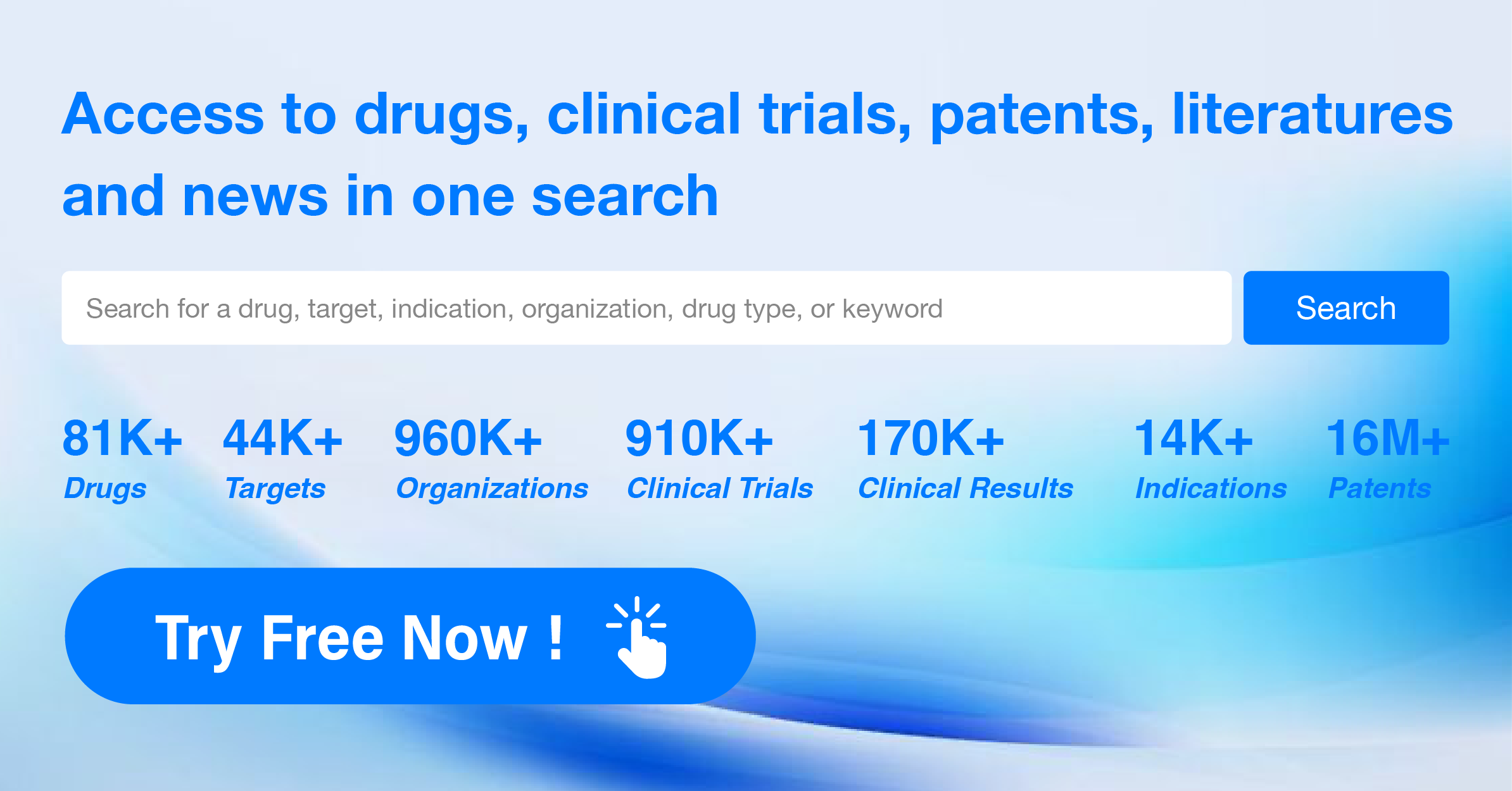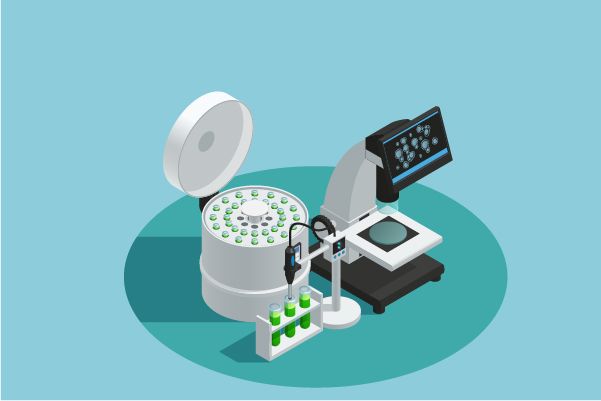Pharma Frontiers: Daily Digest of Global Pharmaceutical News - April 18
1.Late-stage cancer patients' 3-year survival rate doubles! AstraZeneca's heavyweight immunotherapy combination demonstrates long-term efficacy
On April 17th, AstraZeneca announced the latest exploratory analysis results from the Phase 3 clinical trial TOPAZ-1. The data showed that its heavyweight immunotherapy Imfinzi in combination with standard chemotherapy provided clinically meaningful long-term overall survival (OS) benefit for patients with advanced biliary tract cancer (BTC) at 3 years.
At a median follow-up time of 41.3 months, the analysis showed that the Imfinzi plus chemotherapy group reduced the risk of death by 26% compared to the chemotherapy alone group (HR=0.74; 95% CI, 0.63-0.87). The median overall survival for the Imfinzi plus chemotherapy group was 12.9 months, while for the chemotherapy alone group it was 11.3 months. The 3-year survival rate for patients receiving the Imfinzi combination therapy was more than twice that of the chemotherapy alone group (14.6% vs. 6.9%). The TOPAZ-1 trial met its primary endpoint of overall survival in the prespecified interim analysis in October 2021, showing that the combination reduced the risk of death by 20% compared with chemotherapy alone (HR=0.80; 95% CI, 0.66-0.97; two-sided p=0.021, statistical significance threshold of 0.03). The tolerability of Imfinzi plus chemotherapy remained favorable, with no new safety signals observed as the follow-up time increased. 15.4% of patients receiving Imfinzi plus chemotherapy experienced treatment-related serious adverse events, compared with 17.3% in the chemotherapy alone group.
Imfinzi is a human monoclonal antibody that binds to the PD-L1 protein and blocks its interaction with PD-1 and CD80 proteins, counteracting the tumor's immune evasion strategies, lifting the suppression of immune responses, and enhancing the immune system's ability to kill cancer cells.
2.Intra-Cellular's Small Molecule Therapy Caplyta Achieves Primary Endpoint in Phase 3 Trial
On April 17th, Intra-Cellular Therapies announced positive topline results from its Phase 3 Study 501 evaluating the small molecule therapy Caplyta (lumateperone) as an adjunctive therapy for major depressive disorder (MDD). The analysis showed that the therapy met the primary and key secondary endpoints, effectively alleviating depressive symptoms in patients. Topline results from the second Phase 3 study (Study 502) of lumateperone are expected to be reported by the end of the second quarter of this year. The analysis showed that the trial met the primary endpoint.
At week 6, patients receiving once-daily 42 mg lumateperone treatment demonstrated a statistically significant and clinically meaningful reduction in the Montgomery-Åsberg Depression Rating Scale (MADRS) total score. In the modified Intent-to-Treat (mITT) population, the least-squares (LS) mean reduction from baseline in the lumateperone group was 14.7 points compared to 9.8 points for placebo (LS mean difference = -4.9 points; p<0.0001). At week 6, lumateperone also demonstrated a statistically significant and clinically meaningful improvement in the Clinical Global Impression-Severity (CGI-S) score compared to placebo (p<0.0001), meeting the key secondary endpoint of the study.
Notably, researchers observed statistically significant efficacy as early as the first assessed time point (week 1), and this efficacy was maintained throughout the study for both the primary and key secondary endpoints. Lumateperone is an oral, once-daily, atypical antipsychotic. It has been approved by the FDA for the treatment of schizophrenia and as an adjunctive therapy for depressive episodes associated with bipolar I or II disorder in adults.
3.Positive Results Announced for Phase 3 ADHERE Trial of Vyvgart Hytrulo Subcutaneous Injection
On April 17th, argenx announced positive data from its Phase 3 ADHERE trial, which evaluated the use of its Vyvgart Hytrulo subcutaneous injection in treating adult patients with chronic inflammatory demyelinating polyneuropathy (CIDP). The analysis showed that the therapy significantly improved clinical symptoms in CIDP patients and reduced the risk of relapse. The data from the ADHERE trial has been submitted to the U.S. FDA as part of a supplemental Biologics License Application (sBLA) for Vyvgart Hytrulo for the treatment of CIDP. The application received Priority Review designation in February 2024, with a PDUFA target date of June 21, 2024.
According to the press release, Vyvgart Hytrulo has the potential to become the first clinical advancement for CIDP patients in 30 years. The ADHERE trial was a multicenter, randomized, double-blind, placebo-controlled study evaluating the efficacy of Vyvgart Hytrulo in treating CIDP patients. In the study, most patients receiving Vyvgart Hytrulo treatment, whether previously treated or not, experienced rapid improvement in clinical symptoms, and had a reduced risk of relapse compared to those receiving placebo. The trial met its primary endpoint. Compared to placebo, patients receiving the therapy had a 61% reduction in the risk of relapse (HR: 0.39, 95% CI: 0.25-0.61, p=0.000039). In the open-label Part A of the ADHERE study, 67% of patients receiving Vyvgart Hytrulo showed evidence of clinical improvement (ECI), with 40% achieving ECI by Week 4. In Part B, patients receiving Vyvgart Hytrulo had a longer clinical response compared to the placebo group, as reflected in a statistically and clinically meaningful reduction in the risk of relapse.
4.Positive Phase 2 Clinical Results for IGC-AD1, an Innovative Treatment for Alzheimer's Disease
On April 17, IGC Pharma announced that interim data from the Phase 2 clinical trial showed that its investigational therapy IGC-AD1 demonstrated clinically meaningful reduction in agitation symptoms in patients with Alzheimer's disease compared to placebo as early as Week 2 of treatment. IGC-AD1 is a cannabis-based formulation containing THC, the psychoactive component of cannabis. IGC-AD1 aims to target neuroinflammation and CB1 receptor dysfunction and is currently being evaluated in a Phase 2 clinical trial for the treatment of Alzheimer's disease. This result utilized the Cohen-Mansfield Agitation Inventory (CMAI) to assess changes in agitation symptoms from baseline to Week 2, demonstrating an effect size of 0.79 (p=0.071), indicating a substantial difference between the treatment and placebo groups.
The press release noted that for agitation therapies approved for Alzheimer's disease in 2023, the CMAI effect size at Week 12 in Phase 3 trials was 0.5. This result highlights the potential of IGC-AD1 as a treatment option. A 2003 study suggested that an effect size greater than 0.5 represents a change that would be noticeable to a careful observer. The ongoing clinical trial is a multi-center, randomized, double-blind, placebo-controlled study (n=146) designed to evaluate the safety and efficacy of IGC-AD1 in treating agitation in patients with Alzheimer's disease-related dementia. To date, patients have received over 1,000 oral doses, with no dose-limiting adverse events observed, highlighting the favorable safety profile of IGC-AD1.
5.Sanofi's anti-CD40L monoclonal antibody receives approval for clinical trials in China for the treatment of multiple sclerosis
On April 17th, the website of the Center for Drug Evaluation (CDE) under China's National Medical Products Administration (NMPA) announced that Sanofi's Class 1 new drug frexalimab injection has received two implied approvals for clinical trials, aimed at developing treatments for adult relapsing multiple sclerosis (RMS) and adult non-relapsing secondary progressive multiple sclerosis (nrSPMS). According to publicly available information, frexalimab is a monoclonal antibody targeting CD40L. This product has previously met the primary endpoint in a Phase 2 clinical study for the treatment of multiple sclerosis, and the study results have been published in the New England Journal of Medicine.
Multiple sclerosis (MS) is a chronic disease. In MS, the immune system abnormally attacks the myelin sheath (which insulates and supports the axons of nerve cells) of the central nervous system (brain, spinal cord, and optic nerve), leading to inflammation and damage. Clinical and pathological evidence suggests that the CD40/CD40L pathway plays a crucial role in the onset and progression of multiple sclerosis, possibly related to peripheral immune tolerance. CD40L, through its interaction with its receptor CD40, plays an important role in regulating the interactions between T cells and other immune cells (especially B cells and antigen-presenting cells), thereby influencing certain important functions associated with autoimmune diseases. Frexalimab (SAR441344) is a novel monoclonal antibody being developed by Sanofi. This product is believed to block the co-stimulatory CD40/CD40L cell pathway required for the activation and function of adaptive (T and B cells) and innate (macrophages and dendritic cells) immune cells, without causing lymphocyte depletion.
6.Tenacia's New Nervous System Drug Ulixacaltamide Extended-Release Tablets Approved for Clinical Trials
On April 17th, the website of the Center for Drug Evaluation (CDE) of China's National Medical Products Administration (NMPA) announced that the Class 1 new drug ulixacaltamide extended-release tablets, applied by Praxis Precision Medicines, has been granted a clinical trial approval by default. The drug is intended for the treatment of Essential Tremor (ET). According to publicly available information, ulixacaltamide extended-release tablets are a differentiated and highly selective small molecule T-type calcium channel inhibitor. In January of this year, Tenacia Biopharmaceuticals and Praxis Precision Medicines reached a collaboration worth over $270 million, allowing Tenacia to develop and commercialize the product in Greater China.
Essential Tremor (ET), also known as primary tremor, is a common neurological disorder characterized by involuntary shaking or trembling of the hands, head, or other parts of the body during voluntary movement or while at rest. Growing evidence suggests that the tremors are caused by abnormal burst firing of neurons in underlying circuits and are believed to be dependent on T-type Ca2+ channel activity. Ulixacaltamide is a differentiated, highly selective small molecule T-type calcium channel inhibitor designed to block the abnormal neuronal burst firing in the cerebello-thalamo-cortical (CTC) circuit associated with tremor activity. The product is currently undergoing Phase 3 clinical trials in the United States for the treatment of Essential Tremor. In previous Phase 2 clinical studies, researchers observed additional benefits when ulixacaltamide was added to Essential Tremor patients already taking propranolol. In January 2024, Tenacia Biopharmaceuticals announced an exclusive collaboration and licensing agreement with Praxis Precision Medicines, under which Tenacia will develop and commercialize ulixacaltamide for the treatment of Essential Tremor in Greater China. As part of the collaboration agreement, Praxis will receive an upfront payment of $15 million, including $5 million in cash and a $10 million equity investment.
7.Takeda Acquires Cancer Small Molecule Therapy for Over $1.2 Billion!
On April 17th, Kumquat Biosciences announced it has entered into a collaboration worth over $1.2 billion with Takeda, establishing a strategic and exclusive partnership to jointly develop and commercialize a novel immuno-modulatory cancer small molecule inhibitor as monotherapy and/or combination therapy.
Kumquat is a pharmaceutical development company dedicated to creating breakthrough therapies for cancer. The company focuses on translating breakthrough sciences into potential "first-in-class" and "best-in-class" therapies. Founded in 2019, the company is supported by OrbiMed, Sequoia Capital, EcoR1, Eli Lilly Asia Fund, and Roche Venture Fund. In 2021, Kumquat entered into a multi-year collaboration with Loxo Oncology, a division of Eli Lilly and Company, to develop novel small molecules that may stimulate tumor-specific immune responses. Under the terms of the agreement, Kumquat will grant Takeda exclusive, global rights to develop and commercialize selected small molecule inhibitors. Takeda will assume and fund all development and commercialization activities, except for Phase 1 trial activities led by Kumquat. Kumquat will receive up to $130 million in near-term payments and is eligible for over $1.2 billion in clinical, regulatory, and commercial milestones.




